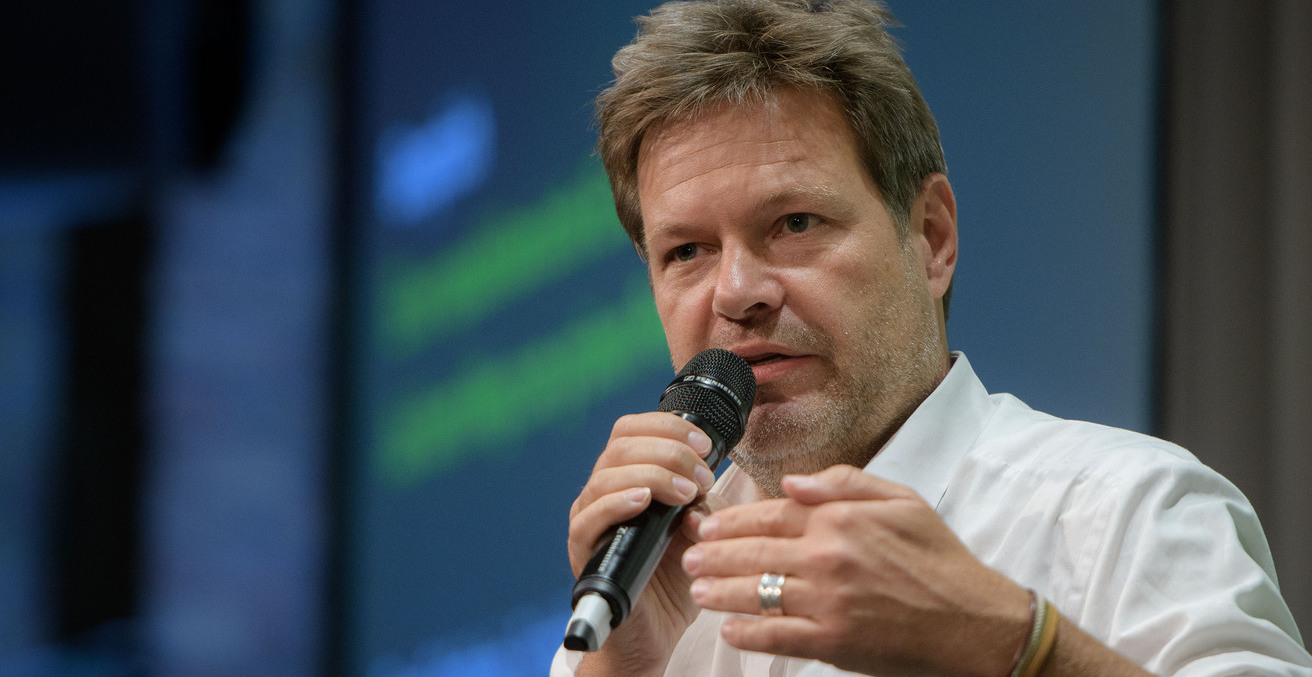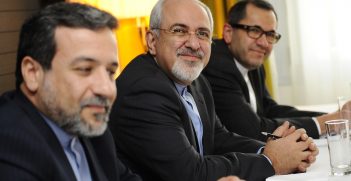Robert Habeck's Dangerous Flirt with Autarky

The newly elected German government has signalled major changes to the nation’s energy policy. This could have dangerous implications for the German economy.
In his first interviews and speeches as federal minister for the economy and climate protection, Robert Habeck emphasised the urgency of restructuring the German economy. Surprisingly, Habeck referred to the supposed benefit of Germany’s partial self-sufficiency several times. Both with regard to the import of raw materials and the financing of wind power farms, Habeck struck a new note. These confusing statements may be due to the minister’s inexperience, but if Habeck really wants to make Germany’s economy less dependent on imports of raw materials, he could set in motion a dangerous spiral of escalation.
The past five decades have seen a consensus across party lines in the Federal Republic of Germany on the benefits of the international division of labour. The German economy benefits from the exchange of goods and services, but also from unrestricted capital flows. Habeck challenges this consensus: he described the “global hunger” for fossil energies — natural gas, oil, and coal — as the cause of the current high level of energy prices. As such, Habeck called for Germany to become less dependent on imports of raw materials.
Upon closer examination, this policy has two decisive weaknesses. First, an energy transition that relies on domestic raw materials cannot succeed. For example, if today’s motor vehicles are to be replaced by electric vehicles, Germany will have to import large quantities of cobalt. About ten kilograms of the rare metal are needed per car battery. At present the main suppliers of cobalt are mines in the Democratic Republic of Congo, the majority of which are operated by Chinese companies. In view of the increasing demand for electric cars, the price of cobalt has already risen from around US $42,000 per ton in June 2021, to $70,500 per ton in January 2022. If this trend continues, the structure of Germany’s dependence on raw materials will be changed but not reduced, at least in the short term. Daimler and Tesla are working on cobalt-free batteries, but their suitability for large-scale production has not yet been established.
Second, the statement by the German minister of economics — Europe’s largest economy — on the disadvantages of imports is alarming. For decades, Germany has had a trade surplus, meaning that it sells more to foreign countries than it buys from them. For example, in the last year before the start of the pandemic, 2019, German companies exported goods worth around €1,300 billion with imports of €1,100 billion. This policy has been criticised for many years by Germany’s trading partners, such as the USA. The European Commission has also repeatedly demanded that Germany reduce its trade surplus, which corresponds to the deficits of other countries. A German minister of economics who wants to reduce raw material imports could provoke economic policy reactions in other countries, such as why buy German industrial products if Germany attempts to buy less abroad? Habeck’s cautious striving for energy policy autarky could therefore open a Pandora’s Box.
Habeck’s comments on the financing of wind farms seem equally audacious. Habeck has recognised that turbines are unpopular. He wants to overcome this by turning local residents into entrepreneurs, thus letting them access the profits of the energy revolution. In an interview with a German television station, he said that the countryside would still be scarred, but it would make, “a big difference whether you have the profits in your own wallet, or whether they flow out to some outside investors who are located somewhere else”.
This suggestion is unconvincing as well. Habeck calls for local financing of wind farms that are unattractive for local residents and thereby also denigrates investors from other economies. Ultimately, this shows a rejection of the benefits of unrestricted capital movements. There certainly were some phases of comprehensive regulation of cross-border capital flows in Germany. However, since the collapse of the Bretton Woods regime in the early 1970s, no governing party has proposed to systematically favour domestic over foreign capital.
Apart from the fact that the European Commission might have objections to the privileged treatment of local investors, other countries could take Germany as an example and discriminate against German investments compared to domestic ones. This would be a problem. For years, Germany’s current account surpluses have been accompanied by comparably high capital exports. The damage to international economic relations from a spiral of escalation set in motion by Germany would be considerable.
Habeck’s proposals on the financing of wind turbines also show how far the Greens have moved away from their origins. What has remained is an unwillingness to compromise. What has been forgotten is that money cannot substitute a destroyed environment. For many years, the Greens carried this demand before themselves like a monstrance. Today, this dimension of sustainable politics has been lost from view and displaced by the unconditional determination to achieve carbon neutrality.
Sustainability is obviously more than just carbon neutrality, but in the new German government’s energy policy, other factors have been largely ignored. The destruction of the landscape by windfarms, the effects of wind turbines on insects and birds, and the effects of policies that reduce imports from developing countries have not been sufficiently considered. Seen from that perspective, today’s policies are like previous ones, in which economic growth was prioritised without regard for the side effects. Today, carbon neutrality has replaced that goal, but again there is insufficient evaluation of the broader picture. In particular, the effects for international economic relations are ignored. Climate neutrality is considered too important to consider them.
Heribert Dieter is professor in International Political Economy, Zeppelin University and senior fellow, German Institute for International and Security Affairs.
This article is published under a Creative Commons License and may be republished with attribution.





